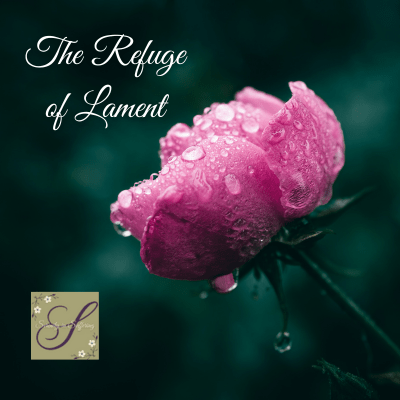Will My Grief Ever Go Away? - Serenity in Suffering
Will my grief ever go away? Asked my 10 year old little girl camper at our sponsored grief camp for kids. I enjoy serving at the children’s bereavement camp sponsored by the hospice agency where I work. We have children ages 6-12 years old that have lost a loved one to death. Each counselor is assigned one child, and you get to spend the entire time helping this child through various activities to process their grief.
The kids for the most part show tremendous resiliency and an openness to talk about their loved one. Through each activity or group game we help the children to come to terms with the loss and then to celebrate ways they can remember their loved one as they go on living. Inevitably each year I am asked the same question, “will my grief ever go away?”
A Complicated Process
Grief is something most people dread; yet everyone experiences. The work involved to process a painful event is nothing short of exhausting. Everyone processes loss differently and there are no hard and fast rules for doing it. The pain of grief can reveal emotions you are not ready to face, it can also affect your physical well-being. While these are normal reactions to a painful loss, they make it more difficult to move forward.

“Grief is like the ocean; it comes on waves ebbing and flowing. Sometimes the water is calm, and sometimes it is overwhelming. All we can do is learn to swim.” Vicki Harrison
Inevitably the process takes time, healing happens gradually. Prompting the question my little friend asked, “will my grief ever go away?” I smiled when she asked that question; she didn’t know she was wise beyond her years! She didn’t know on many dark and lonely nights I had asked the very same question weary of my own pain.
Grief Isn’t Just About Death
Grief isn’t always about death, it’s about loss, and death is just one form of loss. Major losses like divorce, or other relationship loss, career loss, pet loss, or miscarriage can trigger intense sorrow. Even life changes such as selling a home after many years, moving long distance or retirement can bring on a season of suffering. Due to the varied types of losses, we can all say we understand what it means to grieve. Unfortunately this type of bereavement remains largely unacknowledged.

In the absence of death, even those suffering the intense loss fail to recognize they are grieving. When we do not recognize the grief element in a major loss or life transition, we fail to begin the healing process. It is important to identify and accept the fact that grief is present.
A Fuller Picture
Acknowledging that the entire bereavement process is highly individual and complicated, we can better understand it as a journey. A journey with places we may or may not pass through depending on our individual situations.
- Remember it is a non-linear process. While the process can consist of stages such as denial, anger, bargaining and depression, we may not pass through them all. It is merely a framework that can help work through the emotions of loss.
- Healing is the ultimate destination. Grief holds the power to heal and transform pain into healing. As we move through the process, we move from a soul that can find no reason to go on, to a soul that has renewed strength to go on living.
- Isolation and loneliness may result. The process can be overwhelming and lonely. We don’t feel like we know how to move on and heal. Friends often don’t know what to say or how to help.
- Transformation and hope encourage. There is always transformation for the living after death. In order to heal, we must embrace the change that death brings. While that change is often painful in the beginning, eventually it supplies the hope needed to go on.
If you do not take the time to grieve, you cannot find a future in which loss is remembered and honored without pain.
Why Grief Does Not End
The affect of intense loss isn’t isolated to one person. When I lost my beloved dog, Golda just 2 months shy of her 15th birthday, my sorrow was agonizing. At the same time my daughter, who grew up with Golda was grieving as was my husband. Having a shared sorrow may sound comforting, but the fact is we each grieved in our own way. Fact is, we still do. At different times, as we miss her, the grief surfaces again, sometimes rekindled by another’s sorrow.
You never go back to the person you were before the loss. When a loved one dies or we experience another intense loss, something inside of us dies too. We are irrevocably altered by what happened. We long to be “our old selves” but that person no longer exists. Grief becomes a part of the person you are now. I wish that were not true, but I know it all too well.

“Grief is the last act of love we have to give to those we loved. Where there is deep grief, there was great love.”
Grief does not begin and end with a funeral; it has no expiration date or timeline. The sorrow we experience over intense loss, whether it be the death of a loved one or another type of loss; never really goes away. It becomes a part of us, softening our rough edges and filling us with a gentler spirit.
While the intensity of the pain can diminish over time, it never completely leaves us. It remains the place where our deepest love for that lost person, pet or life circumstance lives forever.











